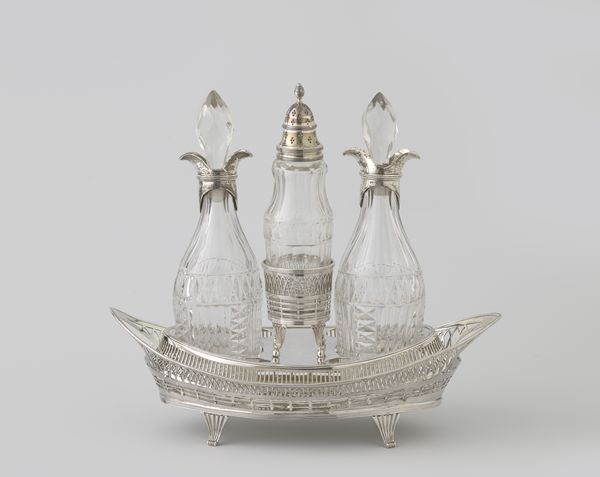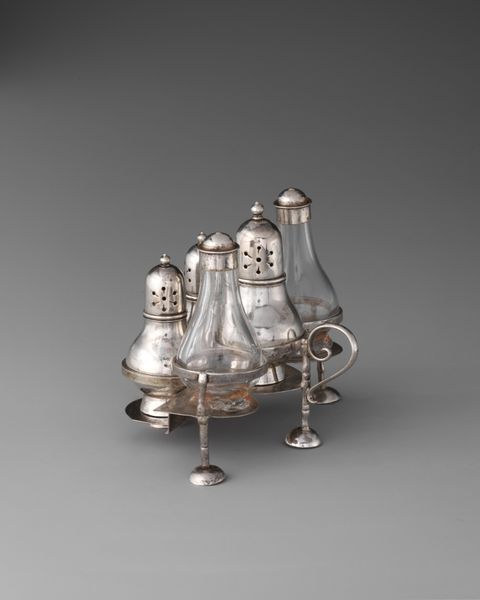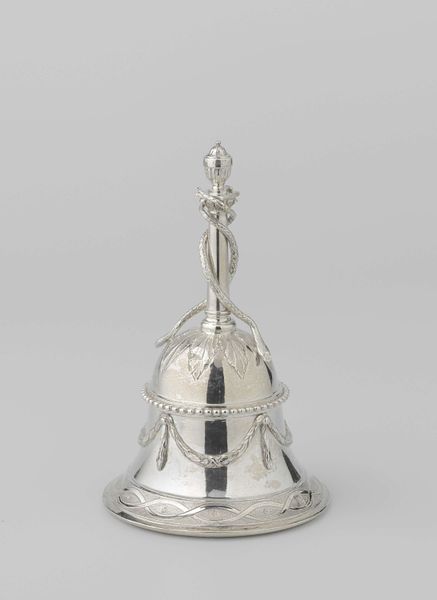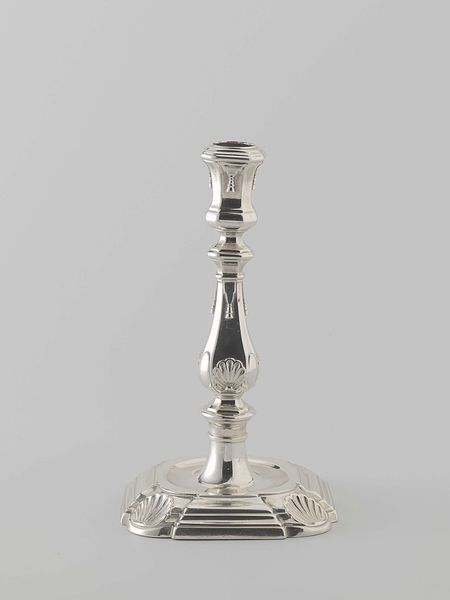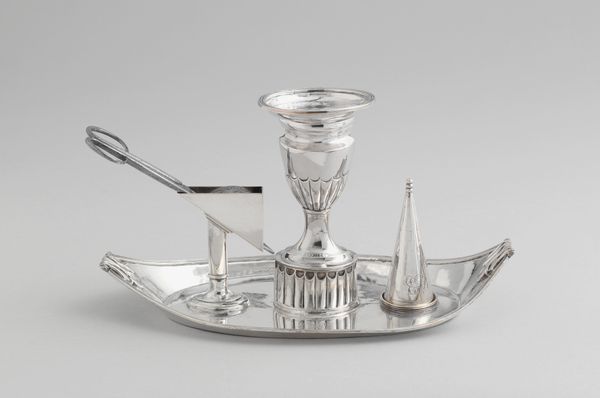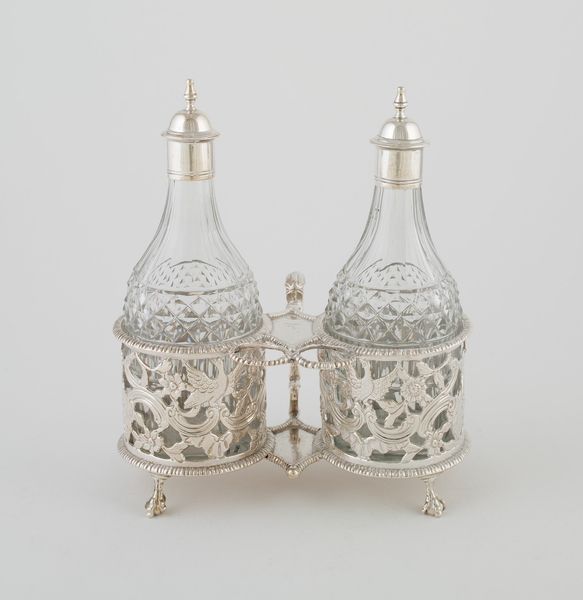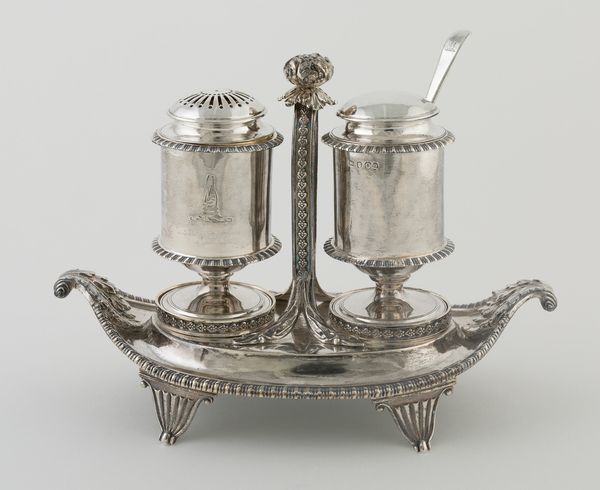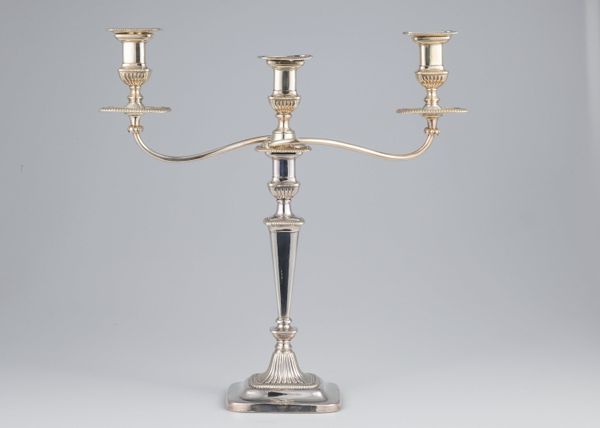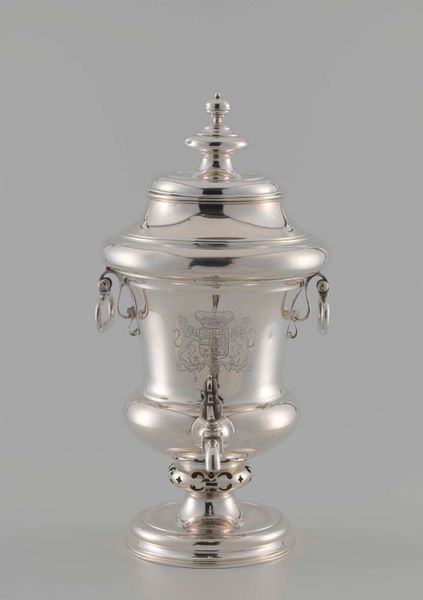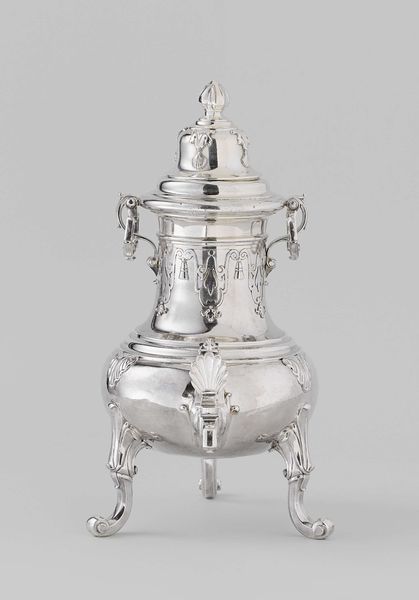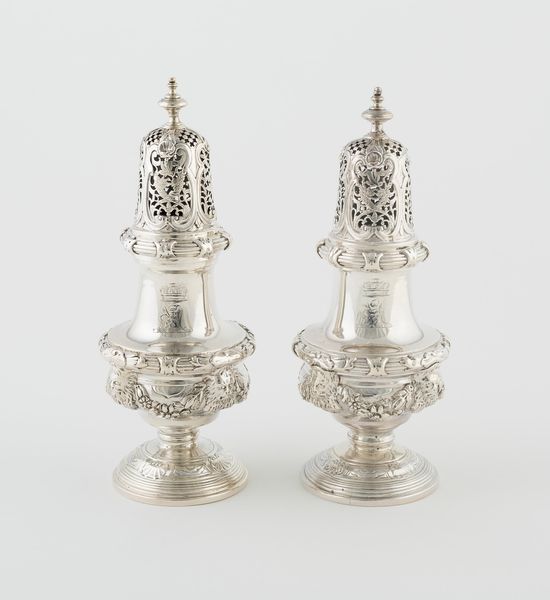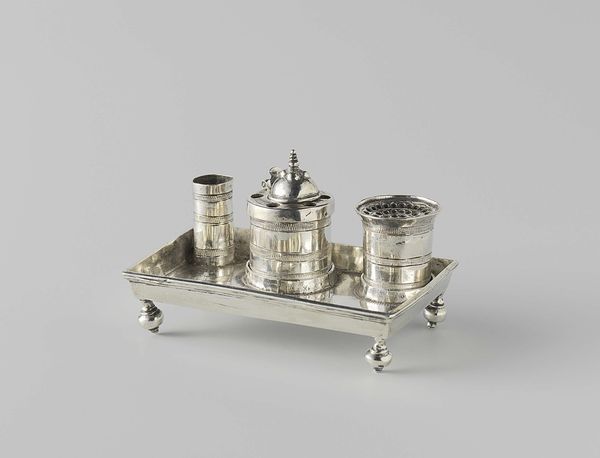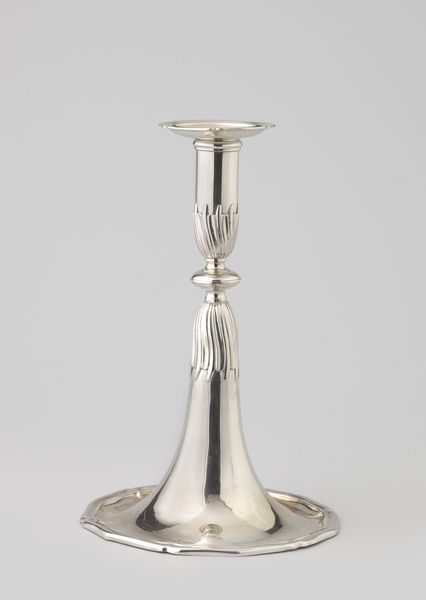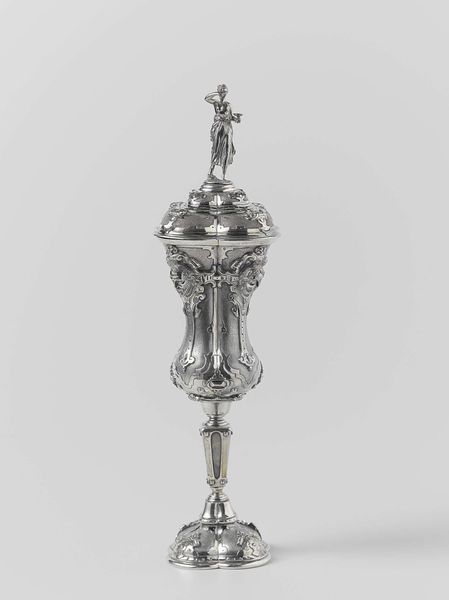
olie- en azijnstel van zilver. De ovale bak heeft pootjes in de vorm van druivetrossen. De opengewerkte flessenhouders zijn versierd met guirlandes 1803
0:00
0:00
silver, ceramic, glass
#
neoclacissism
#
silver
#
ceramic
#
glass
#
decorative-art
Dimensions: height 31.7 cm, width 18.6 cm, depth 32.3 cm
Copyright: Rijks Museum: Open Domain
This is a silver oil and vinegar set, created by Francois Marcus Simons, who was active in the late 18th and early 19th centuries. Consider the historical context in which Simons was working. The elaborate design, with its grape cluster feet and delicate garlands, speaks to a culture of aristocratic dining and display. Silver, as a material, signaled wealth and status, underscoring the social hierarchies of the time. The set isn't merely functional; it’s performative. It speaks to how meals were a stage for demonstrating refinement and power. Who was served with this object and who was excluded? What did it mean to have such an object as a signifier of status? While this set evokes a sense of refined elegance, it’s important to remember that its creation and use were embedded in a society marked by inequality.
Comments
No comments
Be the first to comment and join the conversation on the ultimate creative platform.
